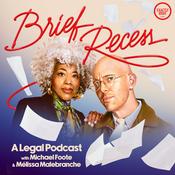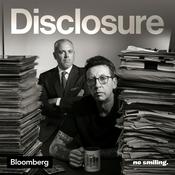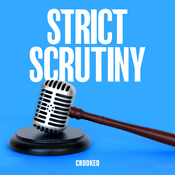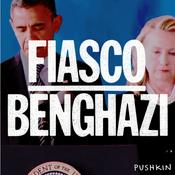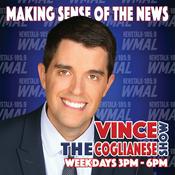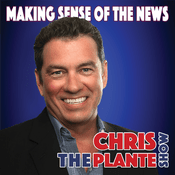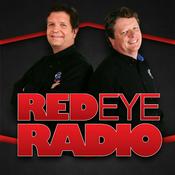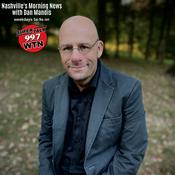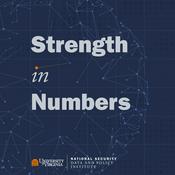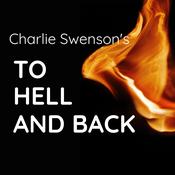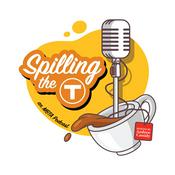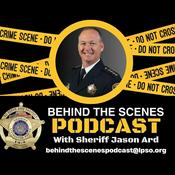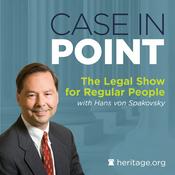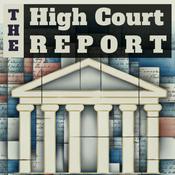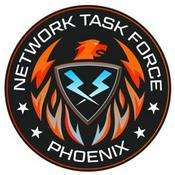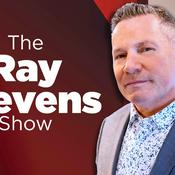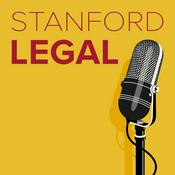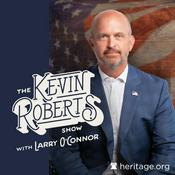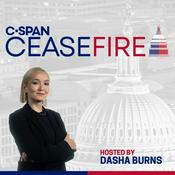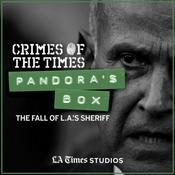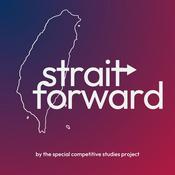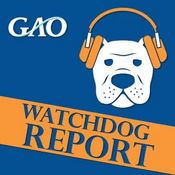117 episodes
- Officers and Soldiers of all ranks perform daily physical tasks that rival—if not surpass—those of some of the world’s top athletes, thanks to the Army’s world-class training and health programs. And who does the Army like to partner with to strengthen and innovate its own training methods? Professional sports teams and their staffs, often creating world-class programs in parallel. Hosts LTG (Ret.) Leslie C. Smith and SMA (Ret.) Dan Dailey sit down with Brett Fischer, the Director of Player Health and Performance for the Detroit Lions, to discuss how his blue-collar upbringing led to his love of sports, what he and his staff do to better their athletes, and how his work with veterans over the years continues to inspire him.
Guest: Brett Fischer, Director, Physical Fitness, Detroit Lions
Has a member of the Army positively changed your life? Now is your chance to thank them publicly with a shoutout via our Hooah Hotline and have it possibly appear on an upcoming episode of AUSA’s Army Matters podcast!
AUSA’s Army Matters podcast can also be heard on Wreaths Across America Radio on Monday at 8 pm Eastern. You can find Wreaths Across America Radio on the iHeart Radio app, the Audacy app, and the TuneIn app. Search the word Wreath.
Donate: If you are interested in supporting AUSA’s educational programs, such as this podcast, please visit www.ausa.org/donate.
Feedback: How are we doing? Email us at [email protected].
Disclaimer:
AUSA’s Army Matters podcast primary purpose is to entertain. The podcast does not constitute advice or services. While guests are invited to listen, listeners please note that you are not being provided professional advice from the podcast or the guests. The views and opinions of our guests do not necessarily reflect the views of AUSA. - With its proximity to China, Russia, and—obviously—North Korea, the United States Forces Korea command is growing in importance by the minute. Leading this force—as well as the United Nations Command and the Combined Forces Command—is highly-regarded GEN Xavier T. Brunson, who brings not only his 35 years of Army experience to the table, but also a vast family history in leadership. Hosts LTG (Ret.) Leslie C. Smith and SMA (Ret.) Dan Dailey sit down with GEN Brunson to discuss the latest developments in the region, how the Army has truly been a family affair for three generations of his family, and how to win an argument when your spouse has been an Army judge.
Guest: GEN Xavier T. Brunson, Commander, United Nations Command, Combined Forces Command, and United States Forces Korea
Has a member of the Army positively changed your life? Now is your chance to thank them publicly with a shoutout via our Hooah Hotline and have it possibly appear on an upcoming episode of AUSA’s Army Matters podcast!
AUSA’s Army Matters podcast can also be heard on Wreaths Across America Radio on Monday at 8 pm Eastern. You can find Wreaths Across America Radio on the iHeart Radio app, the Audacy app, and the TuneIn app. Search the word Wreath.
Donate: If you are interested in supporting AUSA’s educational programs, such as this podcast, please visit www.ausa.org/donate.
Feedback: How are we doing? Email us at [email protected].
Disclaimer:
AUSA’s Army Matters podcast primary purpose is to entertain. The podcast does not constitute advice or services. While guests are invited to listen, listeners please note that you are not being provided professional advice from the podcast or the guests. The views and opinions of our guests do not necessarily reflect the views of AUSA. - In 2014, a military spouse and a priest—both avid bakers—wanted to create a fun, welcoming place that could help out transitioning veterans. They started Dog Tag Bakery, a Washington café that not only serves coffee and treats but also hosts a business incubator program. Over the last decade, the organization has assisted almost four hundred veterans and military spouses in their startup companies, creating employment—and high spirits—across the country. Hosts LTG (Ret.) Leslie C. Smith and SMA (Ret.) Dan Dailey sit down with Dog Tag’s Director of Programs and Community Impact, Maureen Devine-Ahl, and Army spouse and entrepreneur, Erin Vandre, to discuss what lessons the bakery teaches its fellows, how it aided Erin in the launch of her business (also a bakery!), and what their favorite sweets are.
Guests:
Maureen Devine-Ahl, Director of Programs and Community Impact, Dog Tag Bakery
Erin Vandre, Dog Tag Bakery Fellow and Founder, Bravory Bakehouse
Has a member of the Army positively changed your life? Now is your chance to thank them publicly with a shoutout via our Hooah Hotline and have it possibly appear on an upcoming episode of AUSA’s Army Matters podcast!
AUSA’s Army Matters podcast can also be heard on Wreaths Across America Radio on Monday at 8 pm Eastern. You can find Wreaths Across America Radio on the iHeart Radio app, the Audacy app, and the TuneIn app. Search the word Wreath.
Donate: If you are interested in supporting AUSA’s educational programs, such as this podcast, please visit www.ausa.org/donate.
Feedback: How are we doing? Email us at [email protected].
Disclaimer:
AUSA’s Army Matters podcast primary purpose is to entertain. The podcast does not constitute advice or services. While guests are invited to listen, listeners please note that you are not being provided professional advice from the podcast or the guests. The views and opinions of our guests do not necessarily reflect the views of AUSA. - On Christmas Eve, 1944, Elizabeth Vincken and her twelve-year-old son, Fritz, sat down for a quiet Christmas Eve dinner, hopeful for a respite in the midst of deadly battles in the northern Belgian forest. Knocks on their door quickly turned their evening into a series of dramatic moments and standoffs, but Elizabeth’s bravery and compassion led to one of the most heart-filled – and unheard – stories of World War II. In this very special holiday episode, Army Matters senior producer Carrie Varouhakis and Army historian and writer Kevin Hymel unearth this story of a mother, a son, weary soldiers, warm food, a song, a fat goose and a lifelong quest, weaving it into a story that will fill your ears – and heart – with joy.
Narrated by:
Kevin M. Hymel, Historian, U.S. Army
Carrie Varouhakis, Senior Producer, AUSA's Army Matters Podcast
Music: The versions of “O Tannenbaum,” “Auld Lang Syne” and “Silent Night” found in this episode are performed by the U.S. Army Field Band.
Has a member of the Army positively changed your life? Now is your chance to thank them publicly with a shoutout via our Hooah Hotline and have it possibly appear on an upcoming episode of AUSA’s Army Matters podcast!
AUSA’s Army Matters podcast can also be heard on Wreaths Across America Radio on Monday at 8 pm Eastern. You can find Wreaths Across America Radio on the iHeart Radio app, the Audacy app, and the TuneIn app. Search the word Wreath.
Donate: If you are interested in supporting AUSA’s educational programs, such as this podcast, please visit www.ausa.org/donate.
Feedback: How are we doing? Email us at [email protected].
Disclaimer:
AUSA’s Army Matters podcast primary purpose is to entertain. The podcast does not constitute advice or services. While guests are invited to listen, listeners please note that you are not being provided professional advice from the podcast or the guests. The views and opinions of our guests do not necessarily reflect the views of AUSA. - As they helped Afghanistan refugees during the sudden withdrawal of American troops from the country in 2021, social entrepreneur Alex McLeod and her husband, MAJ Jay Long, realized they wanted to create a better system for these new immigrants to fund their small businesses. They created Parlay Protocol, an AI-aided, veteran-built financial platform that makes it easier for banks to approve small business loans. It’s just one of many startups for this Army couple, who have a great track record of success as entrepreneurs – and in their marriage. Hosts LTG (Ret.) Leslie C. Smith and SMA (Ret.) Dan Dailey sit down with Alex and Jay to discuss the all-female Afghan battalion that inspired them, how Jay’s work with the newly-founded Detachment 201 has taught him a few lessons, and what they do when they disagree.
Guests:
Alex McLeod, CEO, Parlay Finance
MAJ Jay Long, U.S. Army Reserve and COO, Parlay Finance
Has a member of the Army positively changed your life? Now is your chance to thank them publicly with a shoutout via our Hooah Hotline and have it possibly appear on an upcoming episode of AUSA’s Army Matters podcast!
AUSA’s Army Matters podcast can also be heard on Wreaths Across America Radio on Monday at 8 pm Eastern. You can find Wreaths Across America Radio on the iHeart Radio app, the Audacy app, and the TuneIn app. Search the word Wreath.
Donate: If you are interested in supporting AUSA’s educational programs, such as this podcast, please visit www.ausa.org/donate.
Feedback: How are we doing? Email us at [email protected].
Disclaimer:
AUSA’s Army Matters podcast primary purpose is to entertain. The podcast does not constitute advice or services. While guests are invited to listen, listeners please note that you are not being provided professional advice from the podcast or the guests. The views and opinions of our guests do not necessarily reflect the views of AUSA.
More Government podcasts
Trending Government podcasts
About AUSA’s Army Matters Podcast
AUSA’s Army Matters podcast amplifies the voices of the Total Army – one story at a time. Join hosts LTG (Ret.) Leslie C. Smith and SMA (Ret.) Dan Dailey every other Wednesday as they interview the modern chroniclers of the Army experience to discuss inspiring leadership stories, current issues faced by soldiers, and our military families’ journeys.
Podcast websiteListen to AUSA’s Army Matters Podcast, Brief Recess: A Legal Podcast with Michael Foote & Mélissa Malebranche and many other podcasts from around the world with the radio.net app
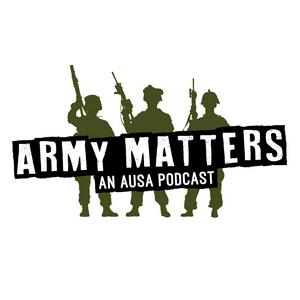
Get the free radio.net app
- Stations and podcasts to bookmark
- Stream via Wi-Fi or Bluetooth
- Supports Carplay & Android Auto
- Many other app features
Get the free radio.net app
- Stations and podcasts to bookmark
- Stream via Wi-Fi or Bluetooth
- Supports Carplay & Android Auto
- Many other app features


AUSA’s Army Matters Podcast
Scan code,
download the app,
start listening.
download the app,
start listening.

